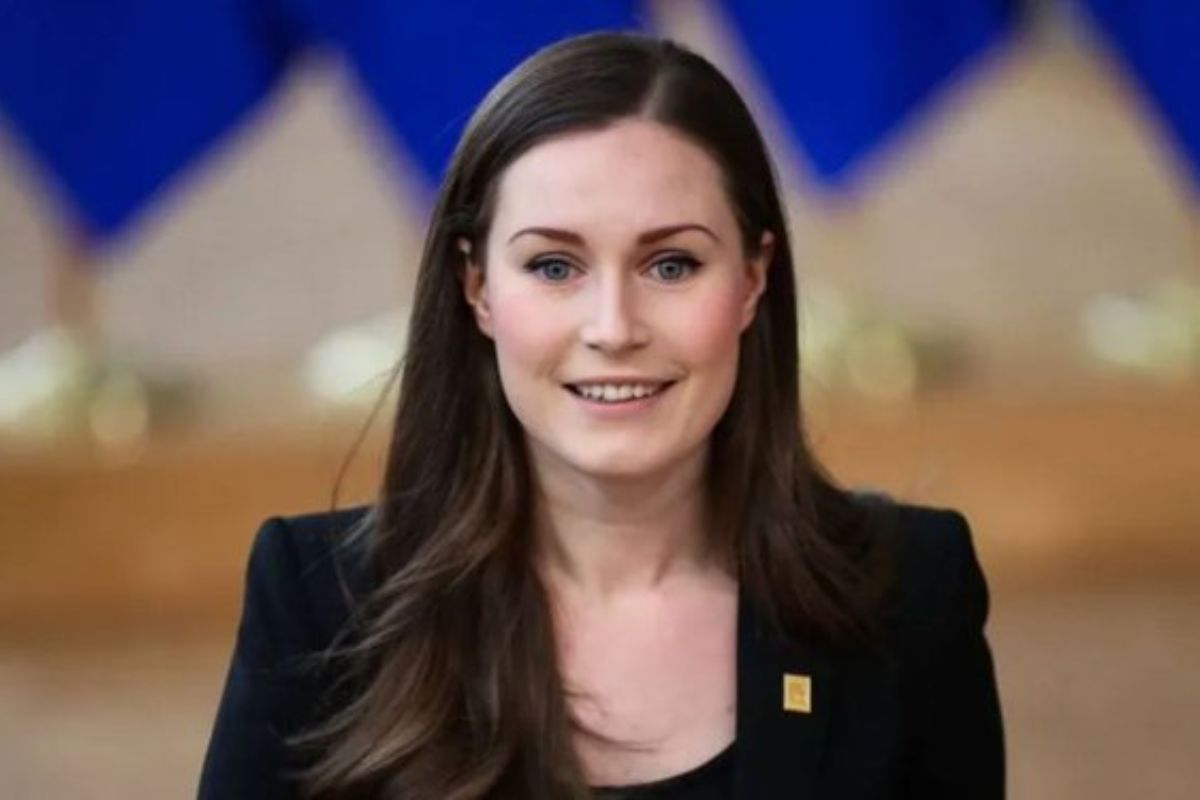The 36-year-old Finnish Prime Minister Sanna Marin was in the spotlight when she became the the country’s youngest ever prime minister and the second-youngest leader in the world in 2019. Thereafter she was in the lens of the media repeatedly for a wide range of reasons – for marrying within the Covid period and for the Finnish attempt to join Nato. And, what’s more, she has been facing controversies for her partying. For example, last December, Marin apologized after it was revealed that she stayed out partying till late on the weekend despite knowing that she had been exposed to Covid-19. Marin, the center-left Social Democratic prime minister, was at the receiving end this August when a leaked video showed her dancing and singing with friends at a private party. And it elicited varying reactions from people, across social media as well as mainstream media.
Not only did the Finnish people become divided – some criticised her while others have come in support of her – but it also became a big international matter of discussion, possibly more than the issue of Finland joining Nato. While Marin was criticised by political opponents for partying in a ‘boisterous way’, she was ultimately found to have not broken any rules. Still, did this controversy break out because Marin is a Prime Minister? Or is it because she is a woman Prime Minister, as perceived by many commentators? Marin, of course, defended herself for such partying: “I have a family life, a work life and also my free time, and I spend time with my friends”, she said. Well, many politicians would not dare to say this, for sure. Still, there are those like Boris Johnson and Donald Trump, for example, who can dare to lead stormy personal lives despite staying in high public office.
Advertisement
Politicians certainly have certain compulsions to convince their electorates. In Finland, both the leader of the far-right Finns Party and an MP from one of Marin’s own coalition partners demanded that the prime minister be screened for illegal narcotics, and then make the results public. Unless you are a politician and you need to convince your electorate, you would not undergo a drug test until that is forced on you, for sure. Marin underwent a drug test which yielded a negative result. From the very beginning, Marin was determined to continue to be “the same person as I have been until now… I have free time that I spend with my friends. I’m pretty sure that’s the same as many people my age”. Finnish society, certainly, helped her to a great extent in her way of life. In a 2020 issue of British Vogue, Marin praised the Finnish people for allowing her to live a “normal life”. “I can go to a grocery store in Tampere and shop for everyday things.
People may stop me and say, ‘Congratulations,’ but that’s it,” Marin said. On her Instagram account, there are her photos with prime ministers and presidents of other countries, as well as of her hanging out with friends. She attended Helsinki’s Flow Festival, one of the country’s biggest music events. She participated in a debate about the state of the country’s music industry. This July, Marin attended the Ruisrock music festival on the Finnish island of Ruissalo. And a few days after the party video was leaked, Marin had to apologize for a picture that emerged from a private party she had thrown at her official residence in July. So, she is a different prime minister. A colorful one, indeed. Well, the broader question is how much a prime minister is ‘different’ from other people in the country. Are politicians in top administrative posts in a country all bound to be 24×7 ‘Chowkidars’? Or do they deserve to have a private time of their own? Certainly, they deserve it. But, up to what extent does society allow them space in their private domains? Where is the Lakshman Rekha of private activities for such prominent public figures?
The answer may, certainly, vary from society to society. When New Zealand PM Jacinda Ardern cancelled her wedding earlier this year after her nation imposed new restrictions to slow the community spread of the Omicron variant, she said: “I’m no different to thousands of other New Zealanders who have had much more devastating impacts felt by the pandemic.” Marin, incidentally, tried to say the same thing when she partied. Again, when a prime minister (or a chief minister) visits a temple or a church, it’s his or her private life, of course. Can’t a prime minister then party like a common man (or a rock star, indeed), Marin might wonder. Still, there is an invisible Lakshman Rekha somewhere, maybe a bit shadowy, maybe quite wide, a bit uncertain, and widely varying from society to society. This may be primarily because leaders are expected to lead by example. And they need to seek the support of voters periodically during elections.
Political leaders often misjudged the Lakshman Rekha in the recent past, and they even partied amid the lockdown. And sometimes they had to pay the price as well. Boris Johnson made his tenure more fragile through the infamous Partygate. Interestingly, Rishi Sunak didn’t have to face that much heat for the same act. Norway’s Conservative party, led by the former Prime Minister Erna Solberg, lost the 2021 election – a few months after such a Partygate when she was fined 20,000 Norwegian kroner by the police. Interestingly, there is another kind of party – the political party. Often prime ministers (or chief ministers) spend substantial time for the parties of which they’re bosses. Interestingly, society doesn’t have much problem with such ‘partying’.
Would young leaders like Marin, who is nicknamed the ‘millennial prime minister’, make a paradigm shift in the mindset of the people by changing their perception about how politicians should lead their lives, at least in some progressive societies? Maybe so, if she can survive long in the political arena. “I hope that in the year 2022 it’s accepted that even decision-makers dance, sing and go to parties,” Marin told reporters. “I didn’t wish for any images to be spread, but it’s up to the voters to decide what they think about it.” The next Finnish parliamentary election in 2023 will tell us. Let’s see the Finnish voters’ reaction to Marin’s outlook on balancing family life, work life, and her free time which she often spends with her friends in a ‘boisterous way’. The implication of that election might be huge. Maybe a new social order is in the making through this leaked partying video, who knows!
A version of this story appears in the print edition of the August 31, 2022, issue.











